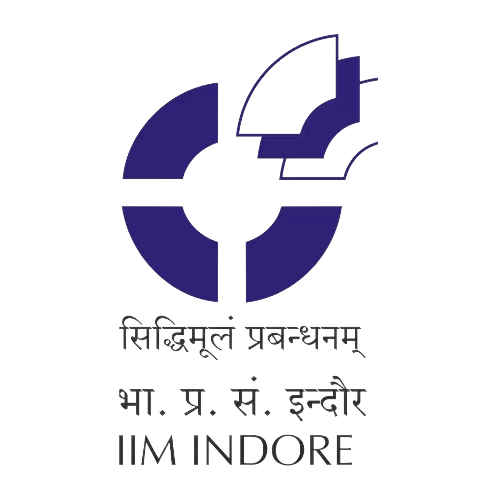Table of Contents
PGDM in Agriculture Business Management
The policy of financial reforms has brought fundamental changes in the economy, which resulted in major changes in the Indian agricultural scenario. The primacy of the subsistence orientation is giving way to commercialization, opening up great opportunities for value addition, packaging and export of agricultural products, with surprisingly high levels of technology. The policies of globalization have brought Indian cultivation to the global village, initiating unprecedented opportunities and great challenges. These and other attendant forces of change are generating significant demand for management skills in the agribusiness sector.
With little focus on developing managerial skills in the undergraduate curriculum, our young agricultural graduates find it difficult to function effectively as managers in agribusiness companies, which have emerged as their most important employers. The Postgraduate Degree programme in Management (Agroindustrial Management) is MANAGE’s response to this situation. The program aims to enable deserving agricultural graduates to acquire the critical competencies to function as effective agribusiness managers. The excellent response from leading Indian and multinational Agribusiness companies in placing students as management apprentices, and their interest in assigning them summer projects, fully validates the launch of the program. The program, launched in 1996, is recognized by the All India Council for Technical Education. Upon ending of the program, selected applicants receive the Postgraduate Diploma in Management (Agroindustrial Management). The program is accredited by the National Accreditation Board (NBA).
Scope
Agribusiness is an area of commerce that involves the processing, storage, distribution, marketing, and retail of products used in agriculture. Agribusiness aims to rationalize agricultural operations so that prices remain in balance. It Covers agricultural planning, weather forecasting, research, soil management, seed production, machinery, plant protection, crop nutrient management, harvesting, product marketing, warehousing, supply chain operations, financing, food processing, retail and much more. All activities ranging from farm planning to putting food on the table are part of Agribusiness.
India’s agricultural industry accounts for about 17.5 percent of the country’s GDP. It is considered the backbone of the Indian economy. One of the largest employers, agriculture meets the nation’s food and nutritional needs and produces important raw materials for several key industries. However, the sector also faces several challenges for the following reasons:
- The swiftly changing and expanding business environment
- The fast-changing pace of technology
- The side effects of globalisation
- A competitively charged environment
- The ever-changing government and its roles
Today, the agricultural sector is of great commercial importance and has evolved from low-level agriculture to commercial agriculture.
In India, of all food products, only 14 percent is processed and about 35 percent of food is spent during packaging and transportation.
This led to the growth of a new sector called Agribusiness that has generated the need for qualified agribusiness professionals. It has made agribusiness management a hot career choice for young people.
The Importance of Agribusiness Education
In India, about 20 to 30 percent of the harvest is wasted each year due to spoilage, floods, pests, diseases, improper handling, and a lack of knowledge about post-harvest technologies.
In a developing country like India, the agribusiness sector has become a field of primary importance. Organizations from all sectors, that is, public, private and cooperative, seek to hire competent and well-trained professionals and agribusiness managers.
The field opens up several avenues for those with a degree in agribusiness management. A career in agribusiness can open doors to a host of industries such as retail marketing, food production, agriculture, real estate, food processing.
From livestock, agriculture to human nutrition, food production, agribusiness covers a significant number of careers globally.
Job Roles in the Agribusiness Industry
1. Crop Producer:
A crop producer is an agricultural practitioner. He works for and/or owns operations that are involved in the growth of crops
2. Agricultural Analyst:
The job of an Agricultural Analyst is to service the current clients and simultaneously create new opportunities within the agribusiness market. Liaising with the clients is also a major part of the job description. It involves helping the client meet their banking needs from buying a new property to purchasing equipment.
3. Market Analyst:
The responsibilities of a marketing analyst in Agribusiness are not very different from their counterparts in other industries. The responsibilities include researching consumer behaviour, exploring the market trends and opportunities, collecting and analysing data based on consumers and competitors.
4. Agribusiness Marketing Coordinator:
A job description of a marketing coordinator involves marketing products by developing and executing marketing campaigns, tracking sales data, planning meetings and trade shows, maintaining the inventory of promotional material, maintaining databases and preparing reports.
5. Quality Controller:
The role of the Quality Controllers or Quality Control Inspectors includes reading blueprints and specifications, monitoring the existing operations to ensure production standards are being met, and inspecting, testing, or measuring materials and/or products being produced.
6. Farm Appraiser:
When a farm loan is being sanctioned, the appraisal is done by an approved Farm Appraiser. The Farm Appraiser is a state-licensed officer who is trained to give expert opinions regarding the values of agricultural values.
Industries that hire these professionals
- Food Production Companies
- Farming Industries
- Public & Private Sector
- Marketing Industries
- Retail Industries
MBAs can get placed as research analysts and marketing managers in these industries. Food retailing is another sector that offers a gamut of career opportunities.
On the other hand, an Agribusiness career in the government sector offers away too many career opportunities that are different from those in the private sector. The degree holders can acquire managerial positions in the National Bank for Agriculture and Rural Development (NABARD). Another government organisation that offers career opportunities to Agribusiness postgraduates is the Food Corporation of India (FCI).
The course curriculum of the MBA Agribusiness programme involves the study of marketing and production of agricultural products and is a gateway to the Food and Health department with the Government after clearing a qualifying exam. Jobs can also be found at the Ministry of Agriculture under the Government of India.
About Agribusiness Management
The management of agribusiness includes the commercialization and management of agricultural-livestock products and crops. It is a vast field that includes other activities such as resource management, agriculture, and crop conservation. The aim of this course is to help students gain knowledge and perspectives on productivity here while also promoting agricultural activity. Students who wish to pursue this course can opt for a PGP in Food and Agribusiness Management at one of the best B schools in India.
Highlights of MBA in Agribusiness Management
Check all these necessary details about MBA Technology Management from the table given below.
| Short Name | Master of Business Administration in Agribusiness Management |
| Full Name | MBA in Agribusiness Management |
| Field | Management |
| Level | Post Graduate |
| Duration | 2 Years |
| Specialization | Agribusiness Management |
| Exam Type | Yearly/ Semester |
| Minimum Qualification Requirement | Bachelor Degree |
| Selection Process | Entrance Exam + Scores in Bachelors’ degree |
| Average Initial Salary | INR 3 to 7 lacs per annum |
| Minimum Aggregate Score Requirement | 50%-60% |
| Employment Opportunities | Food processing industry, Agriculture financing, Regional Rural banks, Nonbanking Financial Institutions |
MBA in Agribusiness Management Eligibility Criteria
Applicants involved in seeking MBA in Agribusiness management can take a look at the eligibility criteria given below:
- A minimum score of 50% in graduation from a recognised institute
- Graduation in agriculture or allied cultivation as the main subject
- Candidates in their final year of graduation are also eligible to apply
MBA in Agribusiness Management Admission Process
To get admission to MBA in Agribusiness Management, candidates need to sit any of the popular entrance exams conducted for management admissions, such as CAT, XAT, CMAT, ATMA, or some specific institute exam. Selection is not made simply on the basis of passing the entrance exam, as after passing the entrance, candidates must also appear for the Group Discussion and Personal Interview rounds.
MBA in Agribusiness Management Syllabus
Aspirants who wish to pursue an MBA in Agribusiness Management should have a knowledge and an understanding of the curriculum and the main subjects that will be explained to them during this course. Given here is the list of subjects that are a portion of the MBA in Agribusiness Management syllabus
- Managerial Economics
- Accounting
- Communication Skills
- Principles of Management
- Marketing
- Information Science
- Computer application
- HR management
- Finance management
- Operations research
- Rural marketing
- Agribusiness environment and policy
- Risk management
- Supply chain management (agricultural)
- Agribusiness cooperatives
- Banking and insurance management
- Project management
- Commodity markets and trading
- Business law and ethics
- Project work
MBA in Agribusiness Management Job Profiles
There are certain job profiles that can be chosen after completing an MBA in agribusiness management. The profiles are listed here along with the average salary for each of the profiles:
Agricultural Policy Analyst –
A person who chooses to work as an Agricultural Policy Analyst is responsible for the development and analysis of policies that affect the business of agriculture. The average annual salary that one can expect in this field is between 3 and 4 lakh rupees.
Funder:
Whoever chooses to work as a Funder after completing an MBA in agribusiness management must provide financial assistance to agribusinesses in this type of profile. The average annual salary of a financier is approximately Rs. 6 lakh.
Farm Appraiser –
A person who works as a farm appraiser has to assess the value of a farm, its facilities and employees as part of the job. They play an important role when a farm is sold, insured, developed or mortgaged. The average annual salary for an agricultural appraiser is approximately 4 lakh rupees.
Quality Controller-
The role of a quality controller is to work for the general improvement of the quality and performance of a farm’s production. The average annual salary for a quality controller is Rs 5 lakh.
Bio-Compost Sales Manager-
The Bio-Compost Sales Manager’s job involves raising awareness among local customers and facilitating sales and promotional activities.
Apart from these job profiles, you can also find employment as Head of Marketing, Relationship Manager, Operations Manager and Market Analyst in various companies.
MBA in Agribusiness Management Salary Scope
Getting an MBA in Agribusiness Management from any of the best universities mentioned above can get you very good starting salaries ranging from Rs. 4 lakh to Rs. 15 lakh per year, depending on the universities. However, the salary packages for rookies can also start from Rs. 30,000 depending on the type of organization you work for.
Frequently Asked Questions
1. What kind of job can you get with an agricultural business degree?
Answer. Careers you can get with a degree in agricultural business include:
- Agribusiness Owner/Manager.
- Agriculture Operations Specialist.
- Agronomy Salesperson.
- Business Manager.
- Claims Processor
2. What is ABM in agriculture?
Answer. Agriculture business management is a two-year MBA programme that concentrates on the business areas of agricultural production and global trade.
Careers Scope & Opportunities for Agriculture Graduates
| Agriculture Research Scientist | Subject Matter Specialist in different Krishi Vigyan Kendras (KVKs) |
| Production Manager | Operations Manager in Fertilizer Units |
| Business Development Manager | Food Processing Units in Government |
| Agri-Preneurship | Seed Technologies Firm |
3. Is Agriculture a good career?
Answer. A career in Agriculture is one of the largest industries and a good source of employment across the country. Agriculture also plays a vital role in the Indian economy. It promotes the efficient production of quality food in the agricultural-food industry & on the farm linked to the farming.
4. What is the salary of an Agriculture officer?
Answer. Agriculture Field Officer salary in Karnataka Bank ranges between ₹ 7 Lakhs to ₹ 9 Lakhs.















